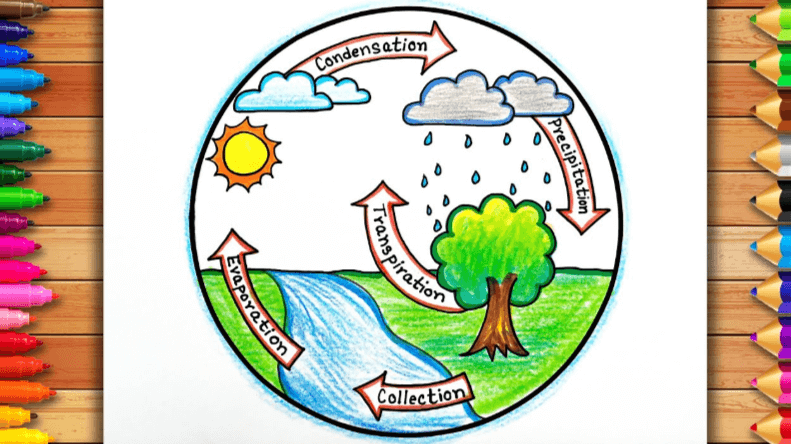Easy:_Sx-G_Stery= the Water Cycle is a fundamental process that ensures the continuity of life on Earth, intricately linking various environmental systems. By examining its stages—evaporation, condensation, and precipitation—we gain insight into its significance not only for climate regulation but also for ecosystem health. Understanding this cycle reveals its profound implications for biodiversity and freshwater replenishment. Yet, as we consider the delicate balance it maintains, questions arise about the challenges it faces in a changing climate. What are the consequences of disrupting this vital cycle, and how can we effectively protect it?
What Is the Water Cycle?
What exactly is the water cycle, and why is it fundamental to life on Earth? The water cycle is a continuous process that recycles water through evaporation, condensation, and precipitation.
Its significance is magnified in the context of climate change, where altered patterns threaten ecosystems.
Emphasizing water conservation is crucial, as it empowers individuals to protect this vital resource and uphold ecological balance.
Stages of the Water Cycle
Understanding the stages of the water cycle is essential for grasping how water moves through our environment and sustains life.
The evaporation process initiates this cycle, followed by condensation formation, leading to various precipitation types.
Water then infiltrates the soil through specific methods, contributing to groundwater movement and storage.
Each stage plays a crucial role in maintaining ecological balance and supporting our planet’s ecosystems.
Importance of the Water Cycle
The significance of the water cycle extends far beyond mere evaporation and precipitation; it is a fundamental process that sustains life on Earth and regulates environmental systems.
Effective water conservation practices are essential, particularly in the face of climate change, as they ensure the resilience of this vital cycle.
Read Also Easy:_Sluxfw5big= Crown Drawing
Impact on Weather and Ecosystems
Water conservation practices not only safeguard the integrity of the water cycle but also significantly influence weather patterns and ecosystem health.
As climate change disrupts traditional weather systems, maintaining ecosystem balance becomes crucial. Effective water management fosters resilience, allowing ecosystems to adapt and thrive despite environmental fluctuations.
Embracing conservation is essential for preserving both our climate and the diverse life that depends on it.
Conclusion
In the intricate dance of nature, the Easy:_Sx-G_Stery= the Water Cycle serves as the lifeblood of Earth’s ecosystems, weaving together the fabric of life through its ceaseless rhythm of evaporation, condensation, and precipitation. This vital process not only nourishes landscapes but also fortifies resilience against climate change. Recognizing the significance of the water cycle is imperative; safeguarding water resources equates to preserving the very essence of biodiversity and ensuring a harmonious balance within the delicate tapestry of life on Earth.

